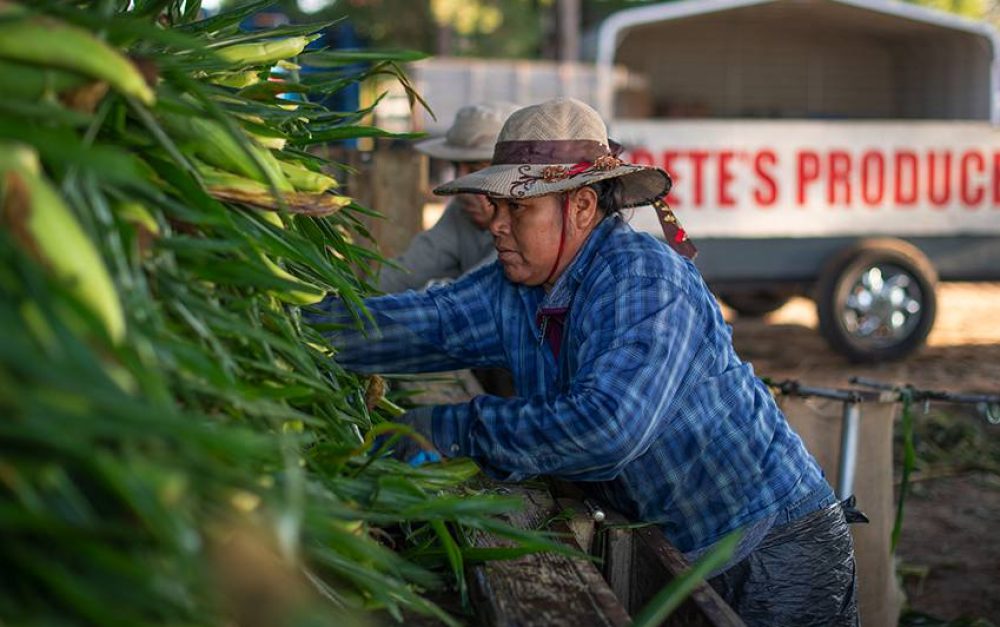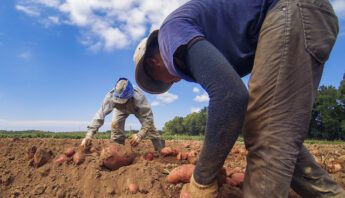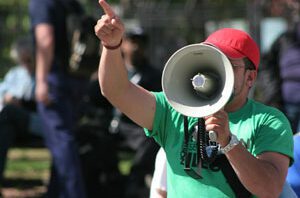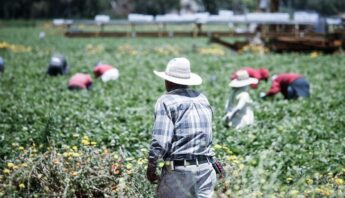The Farmworker Association of Florida (FWAF) has been building power with Florida’s farmworkers for more than 25 years, and is led and governed by farmworkers in the communities in which it works. PAN Senior Scientist Margaret Reeves recently chatted with Jeannie Economos, FWAF’s Pesticide Safety and Environmental Health Project Coordinator.
The Farmworker Association of Florida (FWAF) has been building power with Florida’s farmworkers for more than 25 years, and is led and governed by farmworkers in the communities in which it works. PAN Senior Scientist Margaret Reeves recently chatted with Jeannie Economos, FWAF’s Pesticide Safety and Environmental Health Project Coordinator.
What is the origin story of FWAF?
The Farmworker Association of Florida started in 1983 in response to a huge freeze. Central Florida was dominated by citrus—it was very rural with very few resources for farmworkers, who were suddenly out of work. Growers were compensated for the crop loss, but workers were not. The United Farm Workers helped workers self-organize for unemployment disaster compensation in Groveland.
Farmworker Association of Central Florida was thus formed by Tirso Moreno, an orange worker at the time, together with Sister Gail Grimes and three other nuns. In 1986 the Association was incorporated in nearby Apopka, changing its name to the Farmworker Association of Florida in 1992.
What are some of the programs FWAF is working on now that you’re excited about?
The main pillars of our work are: 1) immigrant rights and immigration policy; 2) health and safety including pesticides, heat stress and enrolling women in prenatal care; 3) worker rights with an offshoot of vocational rehabilitation service; and 4) agroecology including community gardens and critique of corporate and chemical-dependent farming.
On immigration, we work primarily with the Florida Immigration Coalition with a focus on ensuring temporary protective status (TPS) for Haitians, Salvadorans, and Hondurans, including sending immigrants to do advocacy in Washington, DC. We continue to work alongside PAN to ban chlorpyrifos, and to ensure implementation of the federal Worker Protection Standard for both field workers and pesticide applicators.
How does FWAF work with other groups around the country?
Our collaboration with partners is critical, including Food Chain Workers, HEAL Food Alliance, Florida Immigrant Coalition and National Farm Worker Ministry and their Youth and Young Adult Network, among others.
Sometimes national organizations focus on their own agendas, and forget the grassroots groups, but our partnership with PAN works because you do a good job lifting up the voices of farmworkers. Together, we can combine PAN’s science knowledge and strategic campaigning expertise with our grassroots experience to effectively mobilize for political action.
What are the biggest challenges facing farmworkers today?
Due to current immigrant issues, fewer farmworkers are coming to us with pesticide-related complaints — either from fear of ICE and/or because the new Worker Protection Standard is actually working better. The biggest challenges are directly related to racism, discrimination and the growing anti-immigrant culture.
What would you like consumers/eaters to understand about farmworkers?
We all need to think about the people who plant and harvest the food we depend on; how their work literally keeps us alive. We want people to understand the important role farmworkers play in our national and global food system, and that we must work to ensure that they too have enough food to eat and are treated with dignity and respect.
Perhaps if instead of “farmworkers,” we spoke of the “men, women, and children who plant, cultivate and harvest our food” it would personalize them more for policymakers and consumers alike.
What is your ideal version of a just, healthy food and farm system?
Our vision is one in which the food and farming system is decentralized, and controlled by people and communities, not big agribusiness corporations. Workers are well-compensated, work in safe and healthy workplaces, and are treated with respect and dignity.







